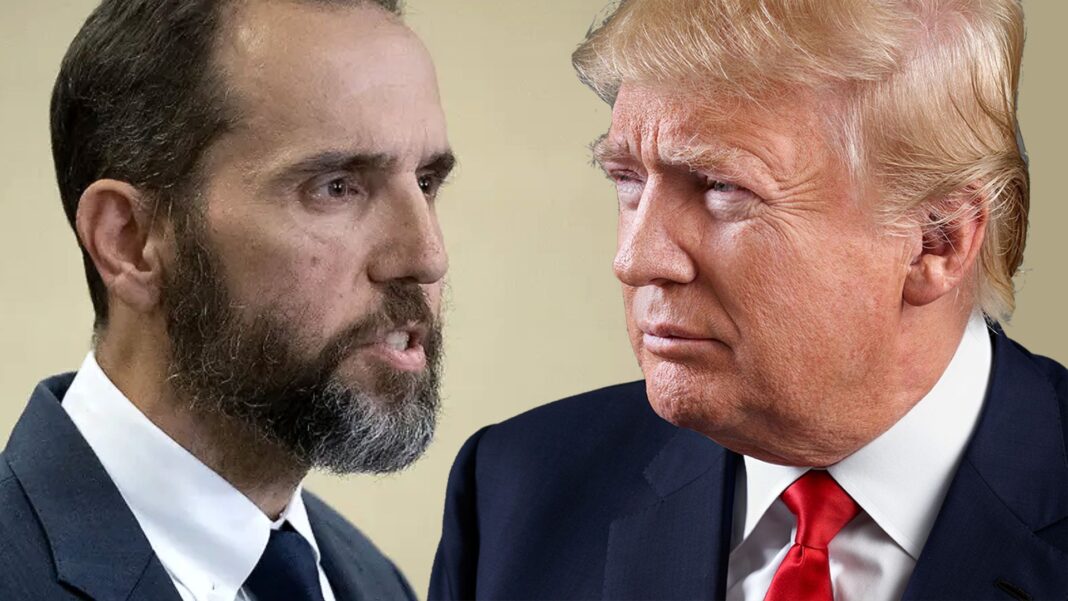The 93-page opinion and order was made after days of oral arguments over the special counsel’s appointment.
U.S. District Judge Aileen Cannon dismissed former President Donald Trump’s classified documents case on July 15, finding that special counsel Jack Smith’s appointment violated the Appointments Clause.
“The Superseding Indictment is DISMISSED because Special Counsel Smith’s appointment violates the Appointments Clause of the United States Constitution,” the order reads.
The 93-page opinion and order was issued after days of oral arguments over the special counsel’s appointment and the statutory authority the Justice Department argued Attorney General Merrick Garland used to appoint Mr. Smith.
The dismissal of the indictment also dismisses the cases of codefendants Walt Nauta and Carlos De Oliveira. All scheduled hearings and deadlines have been canceled. Restrictions on sealed and classified information in the case remain in place.
Prosecutors are expected to appeal the order.
Appointments Clause
The Appointments Clause stipulates that officers must be nominated by the president and confirmed by the Senate. It identifies a difference between courts later deemed “principal” versus “inferior” officers and states that department heads may appoint inferior officers if Congress has passed legislation allowing them to do so.
This is a “critical constitutional restriction stemming from the separation of powers,” the judge wrote, and Mr. Smith’s appointment “effectively usurps that important legislative authority.”
The defense had argued that Mr. Smith had the powers of a principal officer and had not gone through such an appointment process.
Prosecutors argued Mr. Smith was an inferior officer and that the attorney general had the statutory authority to appoint a special counsel, relying on several different statutes naming independent counsel, special attorneys, and other similar positions, but not a “special counsel statute,” as the judge noted in a hearing.
Judge Cannon accepted the prosecutors’ view that the special counsel is an “inferior Officer” but found that there was no statutory authority allowing the head of the Justice Department to appoint such inferior officers.
“Is there a statute in the United States Code that authorizes the appointment of Special Counsel Smith to conduct this prosecution? After careful study of this seminal issue, the answer is no,” the judge wrote.
The judge found that Congress has passed laws allowing the president to nominate an attorney general, deputy attorney general, associate attorney general, solicitor general, assistant attorney general, and each time uses language in line with the Appointments Clause.
U.S. Attorneys also go through the nomination and confirmation process, and some third party amicus experts had argued that if the attorney general had selected a confirmed U.S. Attorney for the position of special counsel, defendants could not have brought such a motion.
















































